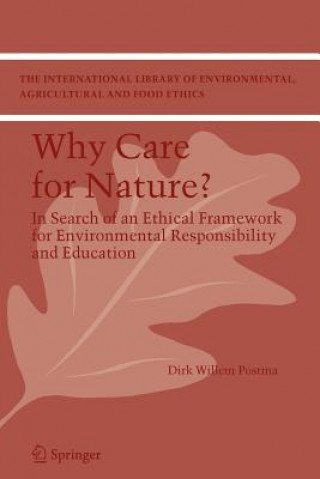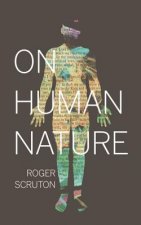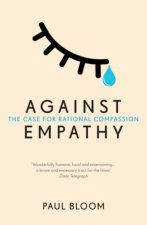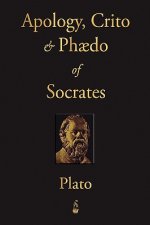
Kód: 01975441
Why care for Nature?
Autor Dirk Willem Postma
"For environmental educators who are searching for theoretical foundations that support critical dialogue on why humans must care for nature, Postma gives a strong theoretical introduction to this under-explored field with extreme ... celý popis
- Jazyk:
 Angličtina
Angličtina - Väzba: Brožovaná
- Počet strán: 221
Nakladateľ: Springer, 2010
- Viac informácií o knihe

123.66 €

Skladom u dodávateľa v malom množstve
Odosielame za 10 - 15 dní
Potrebujete viac kusov?Ak máte záujem o viac kusov, preverte, prosím, najprv dostupnosť titulu na našej zákazníckej podpore.
Pridať medzi želanie
Mohlo by sa vám tiež páčiť
-

Role of Seismic Testing Facilities in Performance-Based Earthquake Engineering
245.57 € -

Top Tips in Anaesthesia
70.52 € -

Shakespeare
4.21 € -11 % -

Aquatic Microbial Ecology and Biogeochemistry: A Dual Perspective
278.73 € -

Die Ligurischen Alpen
22.33 € -5 % -

Landschaften im Oman (Wandkalender immerwährend DIN A4 quer)
21.72 € -

Geschichtsunterricht auf Schulhof & Co. Klasse 5/6
26.76 €
Darčekový poukaz: Radosť zaručená
- Darujte poukaz v ľubovoľnej hodnote, a my sa postaráme o zvyšok.
- Poukaz sa vzťahuje na všetky produkty v našej ponuke.
- Elektronický poukaz si vytlačíte z e-mailu a môžete ho ihneď darovať.
- Platnosť poukazu je 12 mesiacov od dátumu vystavenia.
Viac informácií o knihe Why care for Nature?
Nákupom získate 304 bodov
 Anotácia knihy
Anotácia knihy
"For environmental educators who are searching for theoretical foundations that support critical dialogue on why humans must care for nature, Postma gives a strong theoretical introduction to this under-explored field with extremely important consequences for the planet s survival."§- Greg W. Misiaszek, Book Review in InterActions: UCLA Journal of Education and Information Studies, Vol. 5, Issue 1, 2009 §The book addresses those educational professionals, policy-makers, academic researchers, students and scholars who are somehow involved in the discourse on environmental education and sustainable development. While the book is first and foremost a research monograph, it might be used as an introduction to environmental philosophy by postgraduate students in educational studies, or as an introduction to educational issues by postgraduate students in environmental studies. While the issues discussed are complex and abstract, the book is readable for a general audience. No specific knowledge and philosophical training are assumed. New terms, distinctions and jargon are introduced and explicated by the author. Furthermore, the crucial insights and arguments are frequently restated in intermediate summaries and conclusions. §That the subject area of environmental education is widely studied, discussed and taught is manifest in the widespread dissemination of journals on environmental education (there are at least five journals in the English speaking world), the manifold conferences and the existence of locally rooted networks of researchers, policy-makers and practitioners on this subject. Furthermore, the last few years, the subject of environmental education has attracted much attention in general academic media (take for instance the special issues of the Journal of Philosophy of Education, Cambridge Journal of Education, Education Philosophy and Theory). Moreover, the recent declaration of the upcoming decade of 2005-2015 as the United Nations Decade on Education for Sustainable Development is likely to increase potential readership in the near future. The subject of environmental education appears to be of particular importance in Australia and New Zealand, where the evident need for nature conservation and protection against ultraviolet radiation has granted relevance to environmental concerns in connection to educational concernsThis book is a rigorous, yet accessible introduction into the current philosophical discourses underpinning practices of environmental education. It provides a comprehensive theoretical framework, relating philosophical key issues and educational concerns in an intrinsic manner, against the background of current practices and policies. While the issues discussed are complex and abstract, the book is readable for a general audience.What is it that inspires us humans tot take responsibility for our involvement with the natural environment? And how do we familiarise children with practices of environmental responsibility? These questions are at the heart of this book, resulting from a comprehensive inquiry into the ethical and politico-philosophical dimensions of environmental education. Two sources of inspiration and responsibility are discussed in particular. First, as citizens of a civil society, inspiration stems from our commitment to the continuation of the collective practices in which we are already engaged. Second, inspiration emerges from our sensual-aesthetic acquaintanceship with the natural surroundings in the course of our everyday activities. This study concludes that there is insufficient room for these sources of inspiration and responsibility within the prevailing framework of Education for Sustainable Development (ESD). An alternative view on the nature and purpose of environmental education is put forward in light of these shortcomings. This view aims to retrieve an existential human sense of care for our natural environment, beyond the narrowly defined appeals made on behalf of future generations, as well as beyond the romantic appeals made on behalf of the intrinsic sovereignty of nature.
 Parametre knihy
Parametre knihy
Zaradenie knihy Knihy po anglicky Humanities Philosophy Ethics & moral philosophy
123.66 €
- Celý názov: Why care for Nature?
- Podnázov: In search of an ethical framework for environmental responsibility and education
- Autor: Dirk Willem Postma
- Jazyk:
 Angličtina
Angličtina - Väzba: Brožovaná
- Počet strán: 221
- EAN: 9789048172511
- ISBN: 9048172519
- ID: 01975441
- Nakladateľ: Springer
- Hmotnosť: 376 g
- Rozmery: 240 × 160 × 13 mm
- Dátum vydania: 19. November 2010
Obľúbené z iného súdka
-

Beyond Good and Evil
8.54 € -27 % -

When Species Meet
25.32 € -4 % -

Lying
18.32 € -

Skin in the Game
12.35 € -12 % -

On Bullshit
9.67 € -16 % -

Moral Landscape
11.42 € -21 % -

Wholeness and the Implicate Order
21 € -14 % -

A Confession
7.92 € -23 % -

On Human Nature
14.30 € -12 % -

Responsibility and Judgment
16.67 € -22 % -

What Money Can't Buy
10.60 € -22 % -

Explaining Postmodernism
25.01 € -20 % -

On the Genealogy of Morals and Ecce Homo
14.30 € -27 % -

Born to Be Good
14.51 € -21 % -

Morality of Law
29.85 € -

Beyond Good and Evil
11.32 € -35 % -

Against Empathy
10.90 € -25 % -

Doing Good Better
12.14 € -19 % -

The Genealogy of Morals
6.79 € -24 % -

Civil Disobedience and Other Essays
3.49 € -26 % -

After Virtue
25.22 € -15 % -

Spy the Lie
17.39 € -15 % -

Matters of Care
31.09 € -6 % -

Ethics
13.99 € -20 % -

Parmenides
8.23 € -12 % -

Meditations
11.52 € -21 % -

Better Never to Have Been
40.77 € -5 % -

Reasons and Persons
32.73 € -5 % -

Ethics in the Real World
19.04 € -9 % -

Justice
16.26 € -21 % -

Inventing the Individual
13.27 € -17 % -

Beyond Freedom and Dignity
22.13 € -14 % -

Precipice
24.50 € -22 % -

Introducing Ethics
9.46 € -28 % -

Usefulness of Useless Knowledge
9.98 € -12 % -

On Truth and Untruth
9.46 € -28 % -

Apology, Crito and Phaedo of Socrates
11.11 € -

Concept of Law
56.42 € -1 % -

Protagoras
31.09 € -

Oxford Handbook of Business Ethics
73.61 € -

Getting Back into Place, Second Edition
34.90 € -4 % -

New Approach to Utilitarianism
62.70 € -

Evidential Argument from Evil
32.22 € -

Beyond Good and Evil
14.10 € -2 % -

Oxford Studies in Metaethics 11
54.67 € -

Principia Ethica
10.80 € -

Ethics of Care
47.36 € -

On Friendship
24.91 € -21 % -

Integrity
21.41 € -4 %
Osobný odber Bratislava a 2642 dalších
Copyright ©2008-24 najlacnejsie-knihy.sk Všetky práva vyhradenéSúkromieCookies


 21 miliónov titulov
21 miliónov titulov Vrátenie do mesiaca
Vrátenie do mesiaca 02/210 210 99 (8-15.30h)
02/210 210 99 (8-15.30h)